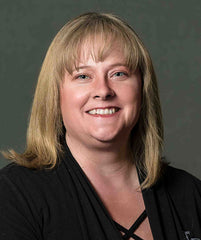Supporting Neurodivergent Students: Strategies To Teach, Coach & Empower
What Is Micro-Credentialing?
A micro-credential is a short, competency-based recognition that allows an educator to demonstrate mastery in a particular area.
View Micro-Credentialing Tour!
Overview
Neurodiversity: Strategies to Support Learning, Belonging & Success is a multi-session micro-credential designed for higher education professionals seeking practical, research-informed ways to support neurodivergent students. Through this series, participants will explore the foundations of neurodiversity, the historical and identity-based context shaping student experiences, and the day-to-day strategies that promote academic growth, engagement, and confidence.
From syllabus design and coaching techniques to Universal Design for Learning (UDL) and campus-wide support systems, this credential equips faculty, advisors, and student service professionals with the knowledge and tools to create environments where neurodivergent students can thrive. By focusing on strengths-based approaches and real-world applications, participants will leave with actionable strategies to better support the diverse cognitive profiles found in today’s classrooms.
Benefits
- Multiple on-demand sessions focused on practical strategies, campus resources, and instructional approaches to support neurodivergent students.
- A personalized learning experience allowing faculty, advisors, and staff to explore content most relevant to their role in higher education.
- A flexible, self-paced format that enables participants to engage with content anytime, making it ideal for busy professionals.
- A strengths-based training package that highlights actionable strategies to enhance student engagement, confidence, and success.
- A professional certificate demonstrating your understanding of neurodivergent student needs and your commitment to equity-minded educational practices.
- A cost-effective development tool that helps institutions build supportive environments and promote student retention through staff skill-building.
- A micro-credential that communicates your competencies in teaching strategies, universal design, coaching strategies, and student support systems.
Institutions can purchase one or many seats. Discounts available.
Completion Criteria
To earn this micro-credential, participants must complete three required courses and two electives, each designed to deepen their understanding of key concepts and provide practical applications for supporting neurodivergent students.
The following 3 courses are required to earn the credential:
- Embracing Neurodivergent Students: History, Identity & Support For Student Success
- Supporting Neurodivergent Students: Teaching Strategies & Campus Resources
- Empowering Neurodivergent Student Success With Universal Design For Learning
Embracing Neurodivergent Students: History, Identity & Support For Student Success
Overview Objectives Presenter
John Caldora, M.Ed
Supporting Neurodivergent Students: Teaching Strategies & Campus Resources
Overview Objectives Presenter
Brittany L. Jackson Ed.D.
Empowering Neurodivergent Student Success With Universal Design For Learning
Overview Objectives Presenter
Brittany L. Jackson Ed.D.
To earn this credential, please select the required number of courses (see above) from the following list:
- Coaching Neurodivergent Students: Building Confidence & Academic Skills
- How Neurodiversity Is Transforming Teaching, Learning & Institutional Policies
- Neurodivergent Students: Effective Strategies To Maximize Support, Engagement & Learning
- Teaching Strategies That Support Neurodivergent Learners
- Inclusive Syllabus Design: Embracing Diversity & Empowering Every Student
Coaching Neurodivergent Students: Building Confidence & Academic Skills
Overview Objectives Presenter
Nadia Eslinger
How Neurodiversity Is Transforming Teaching, Learning & Institutional Policies
Overview Objectives Presenter
Brittany L. Jackson Ed.D.
Neurodivergent Students: Effective Strategies To Maximize Support, Engagement & Learning
Overview Objectives Presenter
John Caldora, M.Ed
Teaching Strategies That Support Neurodivergent Learners
Overview Objectives Presenter
Brittany L. Jackson Ed.D.
Inclusive Syllabus Design: Embracing Diversity & Empowering Every Student
Overview Objectives Presenter
Sheryl Burgstahler
